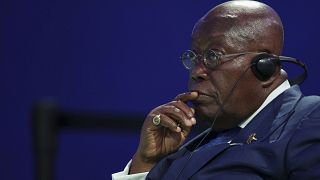Russia
Crude oil prices rose to their highest level in nearly a year and a half after both the Organization of Petroleum Exporting Countries (OPEC) and non-OPEC producers agreed on Saturday to output cuts for the first time since 2001.
The group agreed on a first deal since 2001 to jointly curtail oil output and ease a global glut after more than two years of low prices.
With the deal finally signed after almost a year of arguing within the Organization of the Petroleum Exporting Countries and mistrust in the willingness of non-OPEC Russia to play ball, the market’s focus will now switch to compliance with the agreement.
Russia,15 years ago failed to deliver on promises to cut in tandem with OPEC, is expected to perform real output reductions this time.
“Our agreement has really stemmed from the sense of responsibility towards the balancing of the market which will lead to positive results not only for producers and exporters but also to consumers, and to the healthy economy we all require to the world,” said OPEC President and Qatar’s Energy Minister, Mohammed bin Saleh al-Sada.
On Saturday, producers from outside the 13-country group agreed to reduce output by 558,000 barrels per day.
“In order to monitor the progress of the deal and to recommend the members the following actions to take, there will be a monitoring committee created which would consist of five countries – three coming from OPEC and two non-OPEC,” said Russian Energy Minister Alexander Novak.
He added that the agreement would speed up the re-balancing in the market, which is happening and help stabilise the oil markets, reduce volatility and speculation and improve the investment attractiveness of the oil industry globally.
The OPEC last week agreed to slash output by 1.2 million barrels per day from January 1, with top exporter Saudi Arabia cutting as much as 486,000 barrels per day.
Saudi Arabia’s energy minister Khalid al-Falih said on Saturday that Riyadh may decide to cut even deeper.
“Saudi Arabia is well-known, we don’t load a single cargo unless it has been requested by a customer based on a pre-announced price based on a long-term contract. So what we are going to be loading in January is based on nominations that we received a few days ago, and allocations that we made two days ago as I mentioned. And as we go forward, we will always keep that ceiling,” he said.
Oil prices have more than halved in the past two years after Saudi Arabia raised output steeply in an attempt to drive higher-cost producers such as U.S. shale firms out of the market.












01:02
Angola quits OPEC over lower production quotas
01:41
Disappointment for climate activists as COP28 adopts ‘transitioning away’ from fossil fuels
Go to video
US hails 'Record' year for trade with Africa
01:22
The 8th OPEC International Seminar gets underway in Vienna
00:54
Russia offers support to Somalian army in fight against terrorist groups
01:12
COP15: Nations reach 'historic' deal to protect nature at Montreal summit